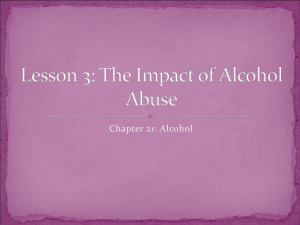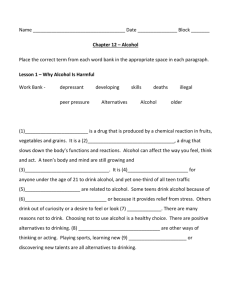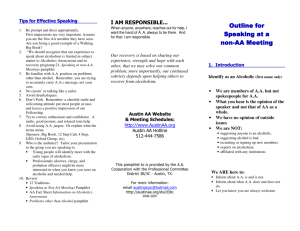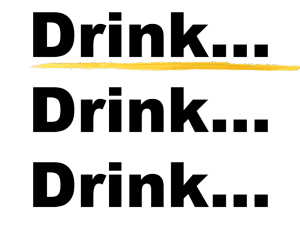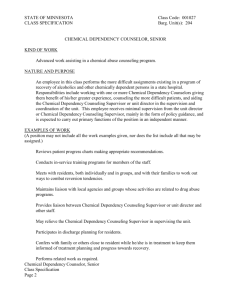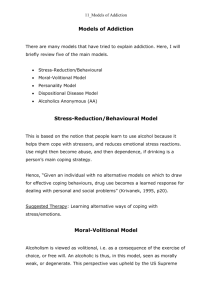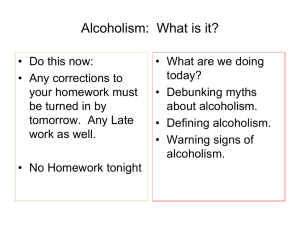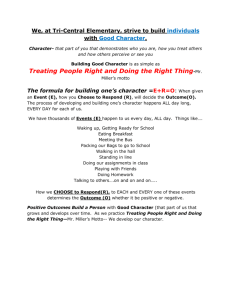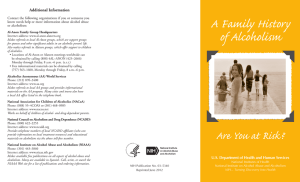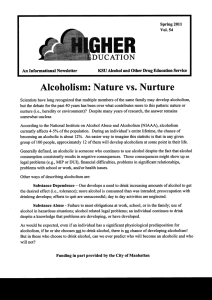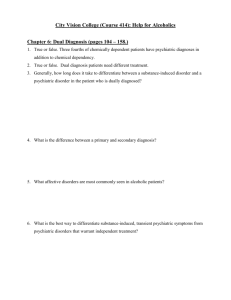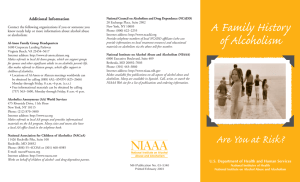Course 414 – Syllabus Help for Alcoholics Professor: Outline
advertisement
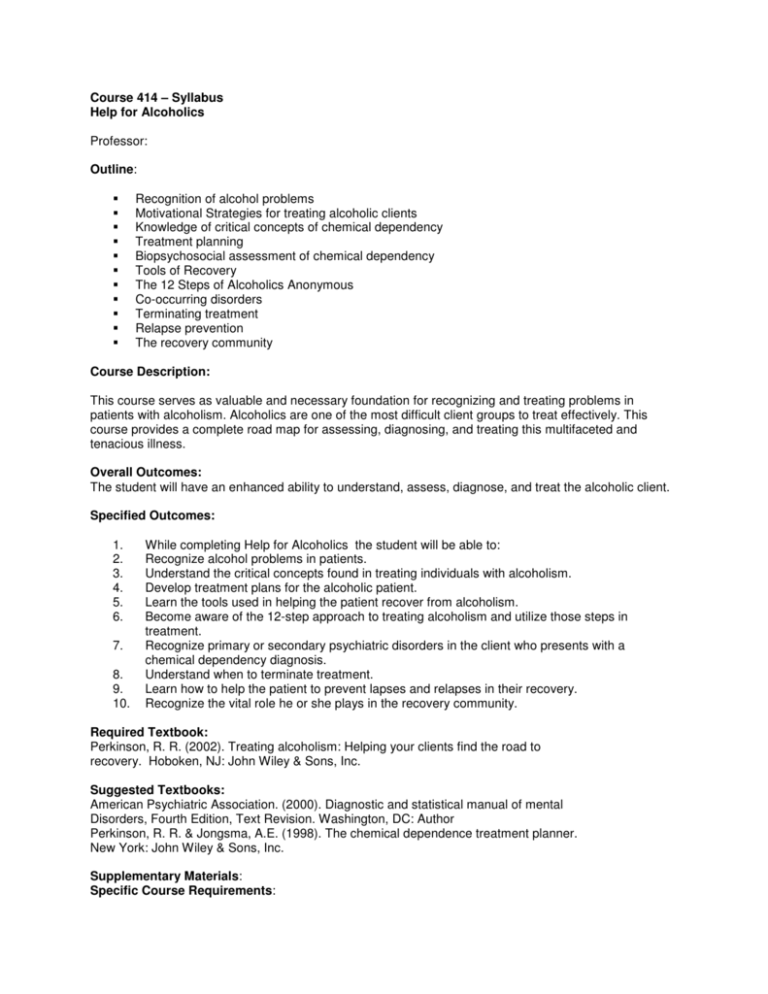
Course 414 – Syllabus Help for Alcoholics Professor: Outline: Recognition of alcohol problems Motivational Strategies for treating alcoholic clients Knowledge of critical concepts of chemical dependency Treatment planning Biopsychosocial assessment of chemical dependency Tools of Recovery The 12 Steps of Alcoholics Anonymous Co-occurring disorders Terminating treatment Relapse prevention The recovery community Course Description: This course serves as valuable and necessary foundation for recognizing and treating problems in patients with alcoholism. Alcoholics are one of the most difficult client groups to treat effectively. This course provides a complete road map for assessing, diagnosing, and treating this multifaceted and tenacious illness. Overall Outcomes: The student will have an enhanced ability to understand, assess, diagnose, and treat the alcoholic client. Specified Outcomes: 1. 2. 3. 4. 5. 6. 7. 8. 9. 10. While completing Help for Alcoholics the student will be able to: Recognize alcohol problems in patients. Understand the critical concepts found in treating individuals with alcoholism. Develop treatment plans for the alcoholic patient. Learn the tools used in helping the patient recover from alcoholism. Become aware of the 12-step approach to treating alcoholism and utilize those steps in treatment. Recognize primary or secondary psychiatric disorders in the client who presents with a chemical dependency diagnosis. Understand when to terminate treatment. Learn how to help the patient to prevent lapses and relapses in their recovery. Recognize the vital role he or she plays in the recovery community. Required Textbook: Perkinson, R. R. (2002). Treating alcoholism: Helping your clients find the road to recovery. Hoboken, NJ: John Wiley & Sons, Inc. Suggested Textbooks: American Psychiatric Association. (2000). Diagnostic and statistical manual of mental Disorders, Fourth Edition, Text Revision. Washington, DC: Author Perkinson, R. R. & Jongsma, A.E. (1998). The chemical dependence treatment planner. New York: John Wiley & Sons, Inc. Supplementary Materials: Specific Course Requirements: Assignments and Projects: Class Participation: Grading procedure and grading scale
